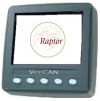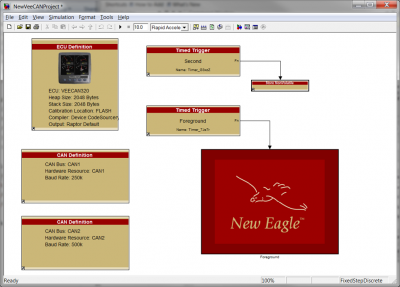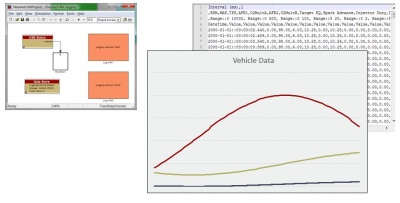Raptor VeeCAN 320: Difference between revisions
Jump to navigation
Jump to search
| Line 2: | Line 2: | ||
[[File:Veecanraptor-white.jpg|100px]]<br> | [[File:Veecanraptor-white.jpg|100px]]<br> | ||
The VeeCAN 320 Raptor display uses the Raptor development software tool to create a display interface for your application. New Eagle adapted the VeeCAN SDK to the Raptor platform. The Raptor VeeCAN platform allows model-based designers to engineer both the display logic and control logic for an HMI (Human Machine Interface). | The VeeCAN 320 Raptor display uses the Raptor development software tool to create a display interface for your application. New Eagle adapted the VeeCAN SDK to the Raptor platform. The Raptor VeeCAN platform allows model-based designers to engineer both the display logic and control logic for an HMI (Human Machine Interface). | ||
Click '''[http://www.neweagle.net/support/wiki/index.php?title=Display_Solutions#Raptor_VeeCAN_320 Here]''' for more information. | |||
Revision as of 19:27, 2 March 2015
VeeCAN 320 Raptor Display

The VeeCAN 320 Raptor display uses the Raptor development software tool to create a display interface for your application. New Eagle adapted the VeeCAN SDK to the Raptor platform. The Raptor VeeCAN platform allows model-based designers to engineer both the display logic and control logic for an HMI (Human Machine Interface).
Click Here for more information.
The Raptor VeeCAN has a template starter project. It provides a base project with CAN logging, control logic, and custom screens.
A Raptor VeeCAN user can receive messages on the CAN bus and read a VeeCAN's Analog Inputs (3 modes: 0-2.5V, 0-10V, 0-500 Ohm). The VeeCAN supports logging to an attached USB memory stick.

